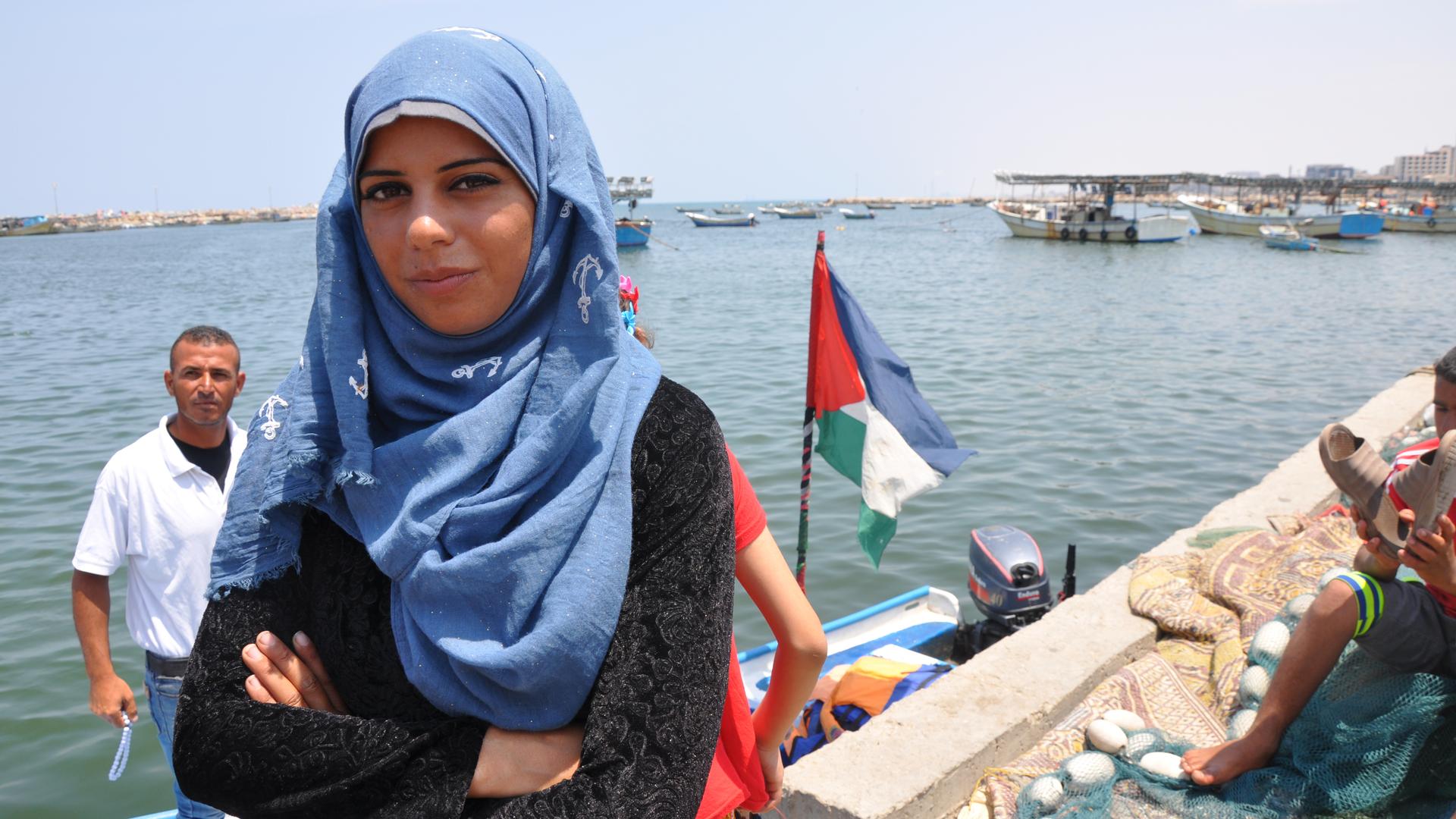Here are 6 women trying — against all odds — to build a future for Gaza
Madeleine Kulab.
Madeleine Kulab grew up by Gaza’s glistening blue sea, watching the waves crash into the strip’s 25-mile Mediterranean coastline. But at 13, when her father, who suffered from a form of palsy, could no longer fish, Kulab took the helm and became her family’s breadwinner.
Now 21, she says becoming Gaza’s first and only fisherwoman was not easy, both because she is a women and because she lives in a society whose dysfunctional relationship with Israel takes a daily toll. “Even the sea isn’t free here,” Kulab says. “People always looked at me and teased or scolded my dad … they didn’t take me seriously. But we ignored them.”
Today, one year after last summer’s war with Israel in which 2,100 Palestinians were killed — most of them civilians — vast devastation can still be seen across the Gaza Strip’s scarred landscape.
For many, Gaza is a cemetery of aspirations never realized. It is one of the most densely populated areas in the world — home to about 1.8 million Palestinians, roughly a third of whom live in UN-funded refugee camps. The territory is riddled with poverty and its local economy strangled by a blockade which Israel imposed in 2007 to weaken the Islamist Hamas government.
UN figures show about 80 percent of the population receives aid. According to the World Bank, unemployment in Gaza is the highest in the world at 43 percent. Youth unemployment hovers over 60 percent. Few ever obtain the proper permits to travel through the territory’s tightly controlled borders.
Since Israel imposed its land and sea blockade, families have suffered. On the water, if fishermen exceed a six-mile limit imposed by Israel, they risk being shot at by the Israeli Navy. “We are given small swimming zones to fish where there isn’t any good fish,” Kulab says, noting her boat has been shot at in the past. “It’s a cage.”
Zakaria Bakr, head of Gaza’s Union of Agricultural Workers, says Kulab is one of the best on the sea. “Living in Gaza taught her to be brave,” he says. “Both physically and mentally. This isn’t always easy here … few men are as strong.”
Aside from the now occasional snickers of men, she also must contend with some of the most restrictive politics in the world.
The conditions weigh heavily on everyone, but groups say women are disproportionately and uniquely burdened. “You’re dealing not only with the Israeli siege, but a conservative society and government that places expectations and limitations on you,” says Reem Hairab, a coordinator at Gaza’s Women Affairs Center. “In Gaza, it’s hardest for the women to breathe.”
Since last summer’s war, the organization says new women come to the center daily, pleading for extra work as their family’s sole provider. Activists also note a spike in domestic violence and divorce rates. When you’re trapped, says Rami Abdu, chairman of the Euro-Mid Observer for Human Rights, anxiety and tension rise not just politically, but also — and especially — personally.
“Women are often on the frontlines of the occupation, of the struggle,” he says. “They often lose the most.”
For Kulab, it’s been a slow recovery. She now fishes two to three times a week, depending on how much fuel she can afford. Because prices have spiked, she often only breaks even on the sea, making around $25 a day. To make up for the slow period, she makes fishing nets for her colleagues and takes Gazans on boat rides, offering them a short reprieve from their circumscribed realities.
Kulab has become something of a local celebrity and her younger sister wants to follow in her footsteps, but Kulab refuses. “She must finish school … she must make something of herself,” she says. While Kulab finished secondary school, she still dreams of going to college. She wants to become a sports teacher.
“I don’t know if I’ll ever have that chance,” she says. “But I at least want her to.”
Meet five other women struggling to build a future in one of the most constricted places in the world
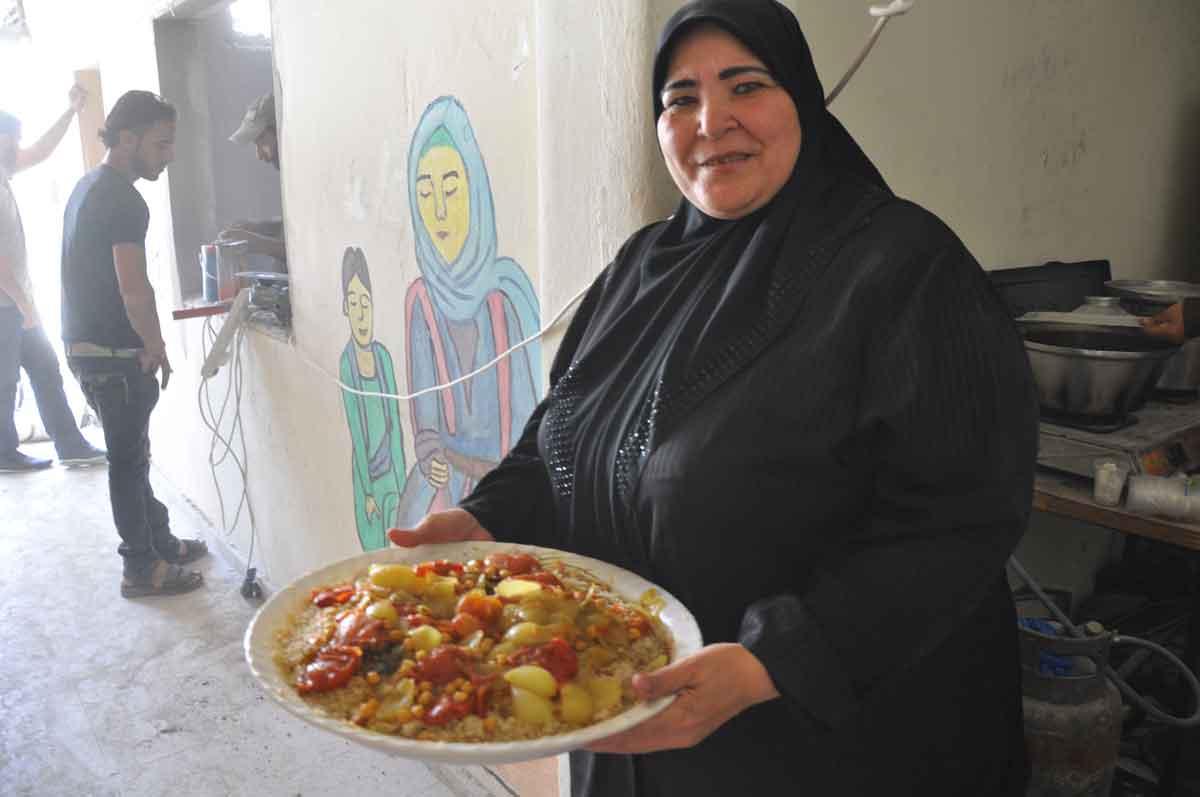
Jameela Dallol remembers the first, and perhaps only, time she fell in love. She was 16-years-old and her mother, a talented cook, left her in their small kitchen to prepare bamiye, an okra stew.
“She told me just to prepare the ingredients, so that when she returned she could cook a feast for us,” recalls Dallol. “But I was daring and said to myself, ‘No, I’m going to cook the whole thing.’”
When her mother returned to a deliciously familiar aroma wafting through their small apartment, she was shocked. Especially since Dallol’s bamiye was just as good, perhaps even better.
Ever since, Dallol has relied on cooking to make a living for her family of 12 in the poor Zeitoun area of Shejaiya, a neighborhood heavily affected by last summer’s war. After returning from a rare trip to the West Bank, a Palestinian territory, when she was 18, she credits herself for introducing the whole neighborhood to Musakhan — a Palestinian dish of roasted chicken baked with onions, sumac, spice, saffron and fried pine nuts that’s now famous among her customers and friends.
“Our Palestinians brothers and sisters live in the West Bank, but the situation has separated us so much that we don’t even know our own meals,” she said. “It’s a tragedy.”
In 2000, she decided to use her love of food to lift other women up. She started “Dallol’s Kitchen” — a community initiative of 17 women who depend on the sale of their meals to make a living for their families. Having never married — which sometimes attracts the sneers of a closed society — she lives with her siblings and takes care of their children.
“I’m the breadwinner and the breadmaker,” she says. “It’s my fate … I wouldn’t have it any other way.”
But Dallol and her cadre of cooks took a huge hit last summer when her kitchen was destroyed after a police station across the street was targeted in an Israeli airstrike.
“When I got the call from a neighbor that the kitchen was gone, I thought it was all over,” she says. “But then I took a deep breath and said … 'No, this our chance to make it even better than before.'”
With the help of local charities, Dallol plans to reopen the kitchen and an adjoining shop later this summer.
“This is my military of women,” she says. “But I don’t think of them as women or as men. We are just humans, directors of our lives.”
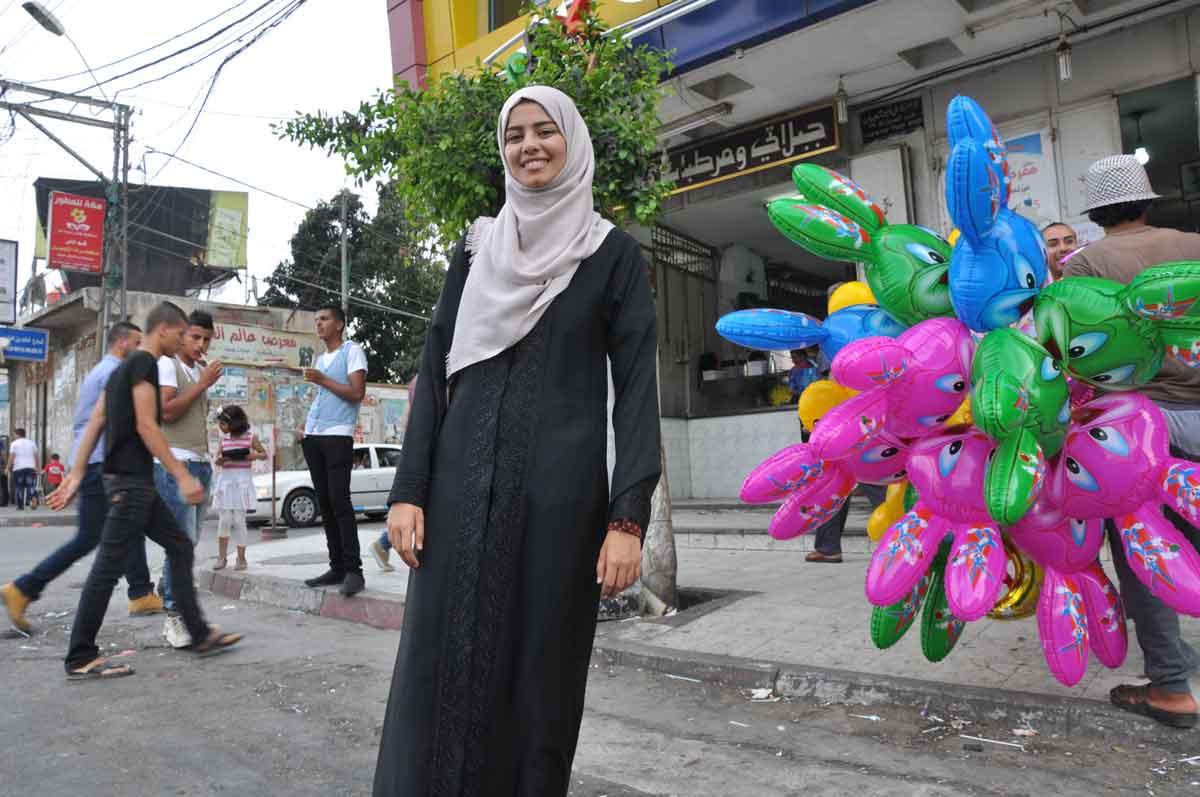
One of the most promising students in the Gaza Strip, Amal Ashour dreams of becoming a famous literature buff. In her third year at Gaza’s Islamic University and one of the top students in her class, she’s fallen in love with Elizabethan literature.
“I feel like I’m moving across the ages,” she says. “Literature is always a nice vacation from Gaza … you go deep into human emotion.”
Her love of English literature was sparked during her senior year of high school, when she received a rare opportunity to study in Minnesota through a US-government funded program.
“It was freedom,” she says. “Once you get a taste of that, it’s hard to come back.”
Ashour still cherishes the diary she started in the US, pages filled with adventures — new sights and sounds. When she got back to Gaza, she stopped writing in it. “Every day here is a routine … nothing is new,” she says. “Routine is the killer.”
In 2012, she was planning to study English literature at a university in the West Bank through another US-sponsored program. But just a month before school started, she was informed the scholarship was no longer available. Under Israeli pressure, US officials had cancelled the program for students in the Gaza Strip, doing away with one of the few American outreach programs in the territory.
While she’s happy with her studies, she often feels constrained in a conservative university and bored with limited course offerings. “When we read Henrik Ibsen’s "A Doll's House," I was one of the few in my class who said that Nora should her leave husband,” she says, while eating ice cream at Kazam’s, Gaza’s most popular ice cream shop. “The others disagreed, claiming that doing so would harm her children.”
For the few who do manage to find a way out of Gaza, juggling newfound opportunity with a sense of guilt can be a precarious balancing act. One morning during last summer’s war, Ashour woke up to devastating news: The parents and siblings of her best friend from Gaza, who has been attending university in the US, was killed in an airstrike.
“There she was in America, following her dreams and struggling to make a better life for her family, and yet she wished she had never went … she wished she had stayed with her family in Gaza and died with them,” she says. “It’s both impossible to stay and impossible to go.”
Fearing losing her scholarship, her friend hasn’t been able to travel home to Gaza, but she will return later this summer when her studies are finished.
“When she comes, we’ll get ice cream at Kazam’s … We’ll read, we’ll walk. We’ll be normal or at least try to be normal,” she says. “I have to stay strong for her. After all, my name in Arabic means ‘Hope.’”
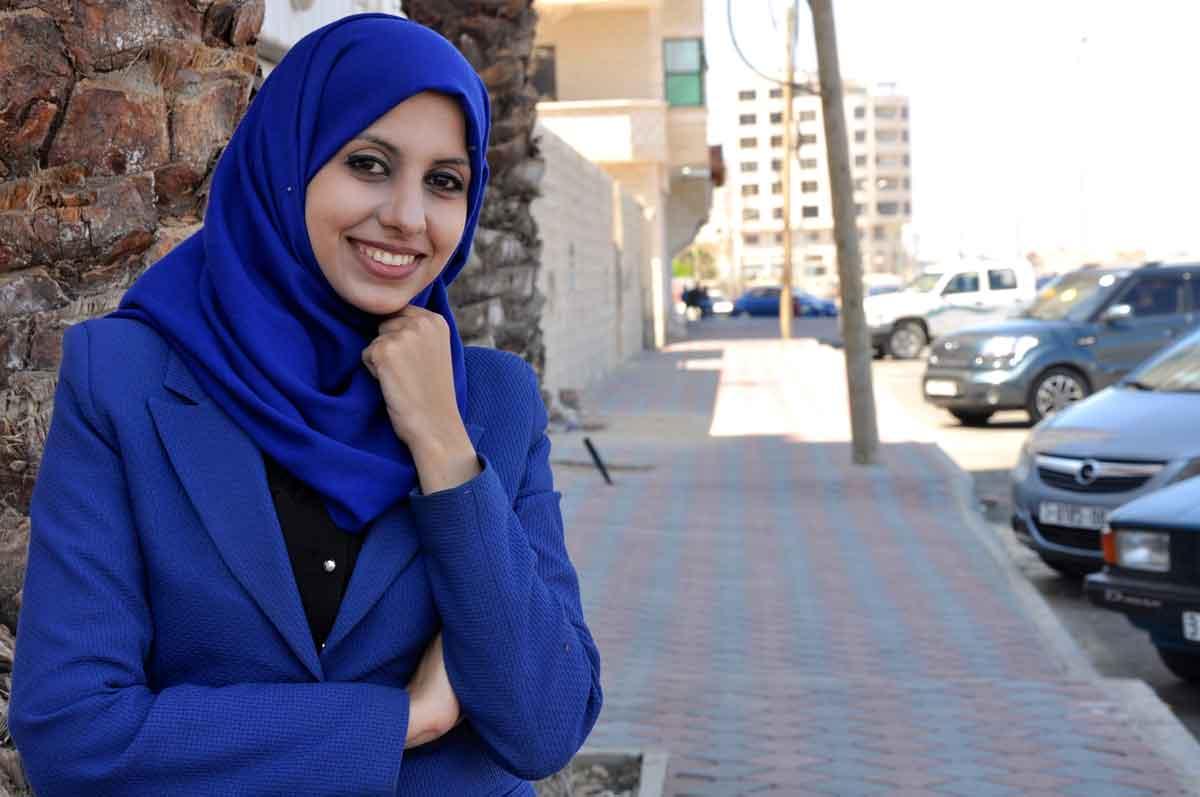
When 25-year-old Mariam Abultewi was a child growing up in Gaza’s El Nuseirat refugee camp, she dreamed of becoming Albert Einstein or Isaac Newton. “Everyone in Gaza wants to be a doctor or an engineer, but I wanted to do something with technology … I wanted to solve problems,” she says. “Technology is the new life-saver.”
The computer engineering graduate knew it would be difficult to find a glimmer of opportunity in a place where few graduates can obtain work. But when she heard about Gaza Sky Geeks —
Gaza’s first and only startup accelerator administered by the international charity, Mercy Corps, she finally saw a chance.
While studying at the University of Gaza, where 60 percent of the IT program is made up of women, she founded Wasselni, a social carpooling network for transportation in Gaza. She is the first female startup founder in Gaza to receive investment through Gaza Sky Geeks, and hopes to scale the idea across the region.
But last summer’s war set her team back. “It destroyed our souls,” she says. “The problem isn’t creating in Gaza … it’s expanding and growing. How do you maintain something tech-focused without regular electricity and barely a 2G network? We need basic reconstruction before we can truly innovate.”
While she hopes to expand Wasselni’s market and find investors in Saudi Arabia and throughout the region, traveling for key meetings is difficult. She has to procure permissions from both Hamas and Israel. And it took her father some convincing that working on a startup was worth her time, not to mention convincing him that she could travel alone. But now he’s her biggest fan.
“I know everything will be OK at the end,” she says. “And if it’s not OK, it’s not the end. Each day you just have do a little something … just a little.”
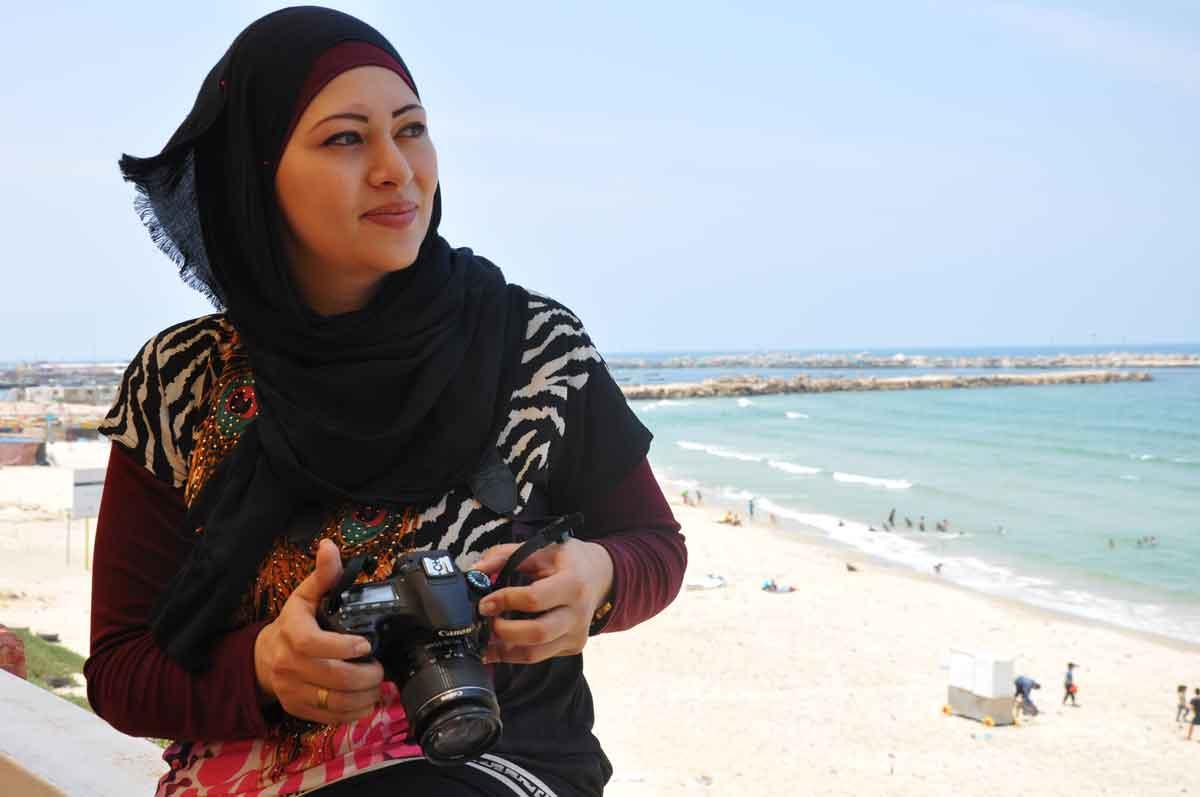
Like many women in Gaza, Walaa Saafin was married off at a young age. At 17, she had big dreams, but few options. Her husband assured her that she could continue her education and become the successful journalist she had always dreamed of being, but that all changed after she started having children.
“He didn’t approve of my being a strong woman … of leaving the house for interviews, of talking with men,” she says. “Men here are close-minded and Gaza forces us to live in these small worlds without oxygen.”
Two years ago, she gained the courage to divorce him, a tough feat in a territory where few women are economically independent. But her bravery came at a price. He only allows her to see their children once every two weeks. She’s fought him in court, but inheritance and custody rights are a protracted battle in Gaza’s less than equitable society. She also faces the judgment of other women, who she says perceive her to be a bad mother.
“It’s been heartbreaking, but I did it for my kids,” she says. “I didn’t want them growing up seeing me trapped.”
Still, she keeps hope. And while she vowed to ward off men, one photojournalist saw her reporting during last summer’s war and later Facebook messaged her. She ignored him for a while, but he persisted and they soon fell in love and recently became engaged — something of a small controversy in a society in which it’s rare for a young, never-married man to marry an older divorced women with children. On a recent weekend, they spent the day with her children at an amusement park, hopping from ride to ride and taking selfies — small pleas to experience and capture stark normalcy amidst anything but.
“You can always find hope in Gaza,” she says, before hopping on the park’s famed ride, Discovery, a short upside down break from reality. “It’s strange, but there’s always hope.”
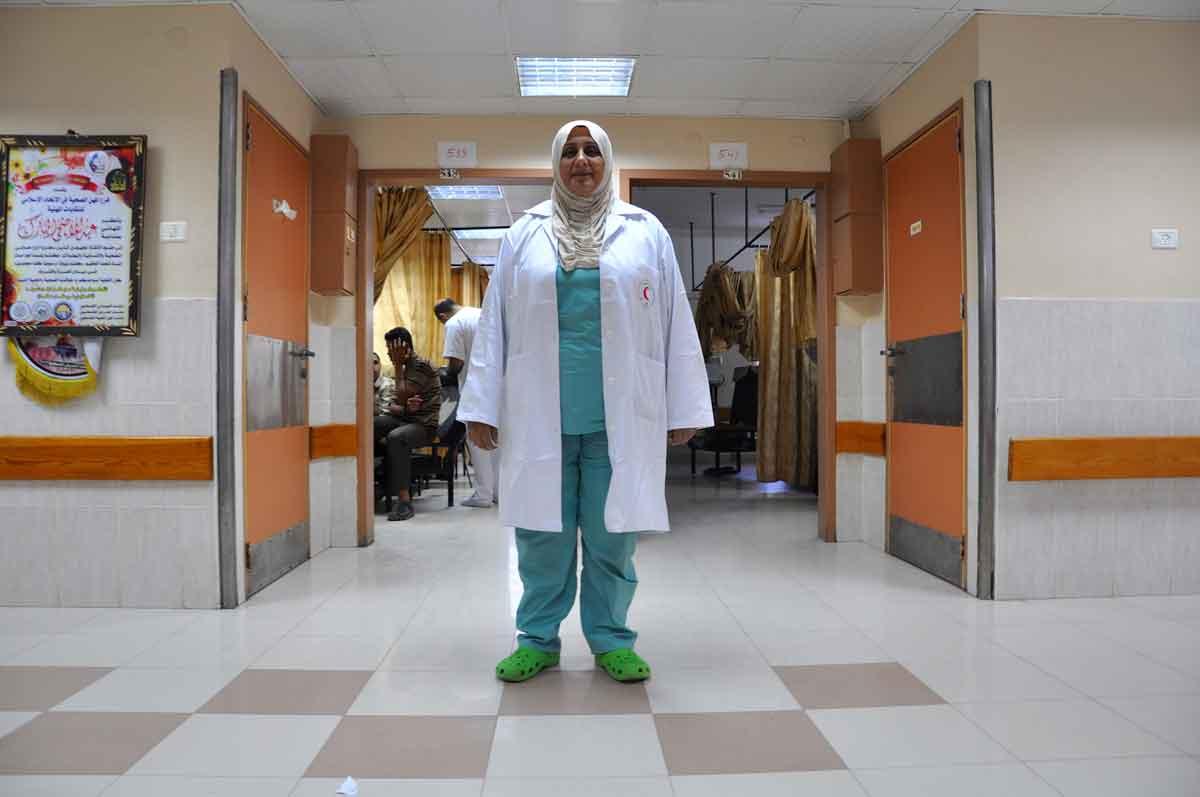
Living in Gaza can be as difficult as performing brain surgery, jokes Mona Keskin, sitting in a squalid, dusty office at Shifa Hospital, the largest medical complex in the Gaza Strip.
She should know — she’s Gaza’s only female neurosurgeon.
From a young age, Keskin was fascinated by the power of the brain. But when she told her father she wanted to study neurosurgery, he discouraged her. “You’ll never find a husband,” he said. “And you’ll never have a family.”
Still, she pressed on and attended medical school in Kazakhstan on a scholarship. When she returned to Shifa Hospital for her residency, instructors and colleagues were “just watching [her], waiting for [her] to make a mistake.” And one of her first male patients initially refused to be treated by her.
“‘Fine, whatever’ I told him, ‘Good luck taking care of yourself,’” she recalls. Moments later he came rushing out of the room, pleading for her to return.
“Look, as a woman, you don’t always have to be polite,” she says. “You have to stand your ground. You can’t worry about being nice.”
She says she’s still shaken from last summer’s war, one of the most difficult periods in her life. She had delivered her fourth child just two months before and rarely left the hospital for two weeks, treating hundreds of patients with head injuries. Some survived, but many — including children — did not.
Even in times of relative normalcy, doing her job can seem impossible. While Shifa is Gaza’s premier hospital with 13 neurosurgeons, they don’t even have an MRI machine — one of the most crucial tools in her field. Patients must visit another hospital for a scan and then return to her office with a CD of images which she plops into her old PC laptop.
“Sometimes you feel like you’re working in the old ages,” she says. “But you still make do … you still save lives. There’s no other way.”
This story is part of an ongoing GroundTruth series called "The Other," supported by the Ford Foundation.
